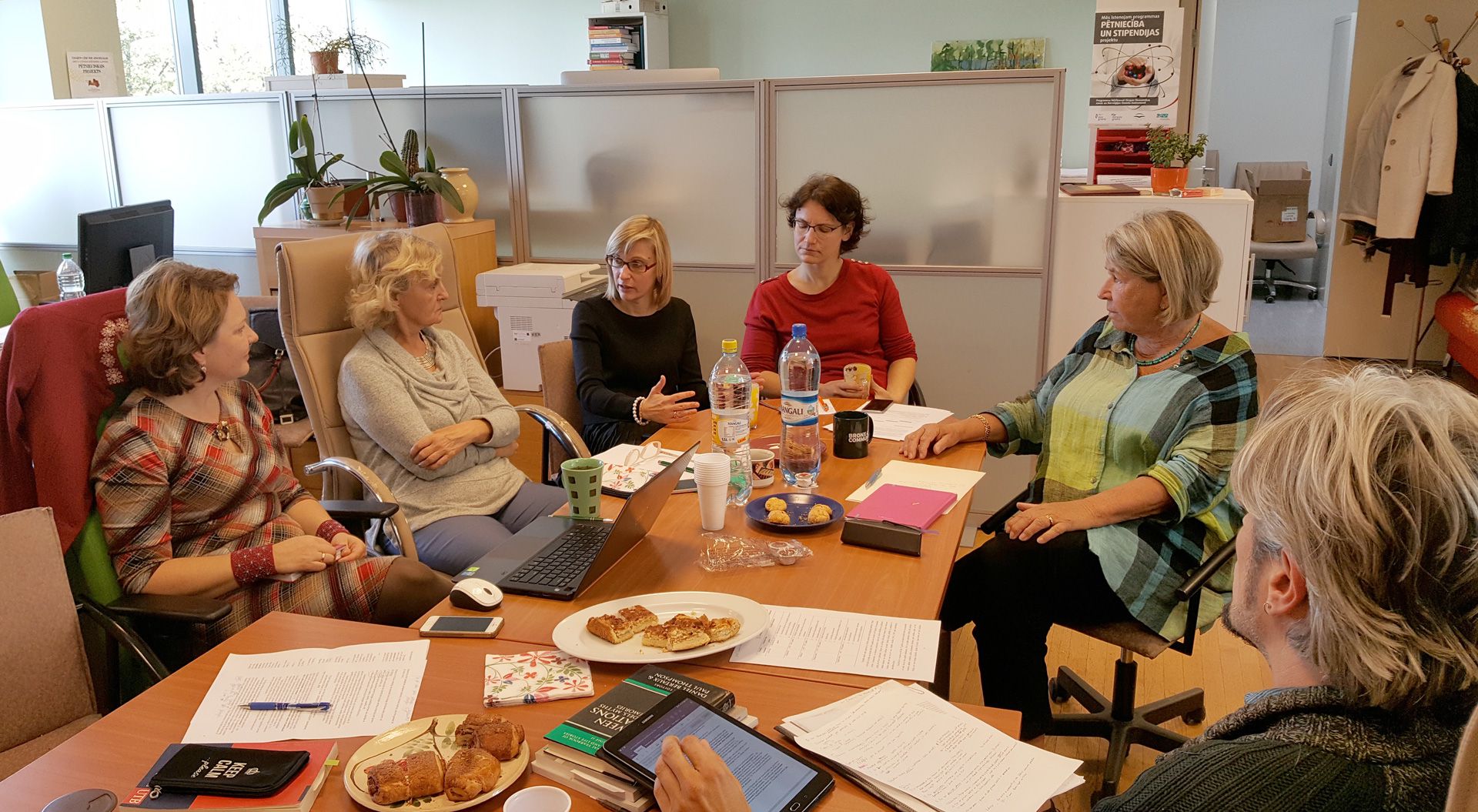Narrative perspectives on intergenerational transmission of memory
The goal of the study is to examine narrative perspectives in the intergenerational transmission of memory, at once identifying factors that influence the creation of a generation’s identity and narratives – the link between generational memory and the experience of historical events, collective memory and the shared value system. The experiences fixed in life stories are diverse and influenced by a narrator’s social status and place of residence as well as by the role and participation in various historical processes of the narrator and/or family members. The ambiguous impact of historical events in Latvia on life story experiences and the transfer thereof in memory stories is of particular note.

Background
The term ‘generation’ in the scientific literature has connotations of life stage (or age and the aging process), historical location (specifically, affinity with the decades of youth) and kinship relations (for example, the roles of parent and child). Usually a comprehension of generation derives from the Mannheimian tradition in the sociology of knowledge in which generations are seen not as objective periods but as subjectively defined cohorts who share a historical experience that creates a ‘community of perception’. In an effort to avoid an identification of generations only according to age or status groups, the meaning of personal memories in a generation’s self-awareness must be carefully clarified, and the life story is one of the ways in which a researcher can approach meanings that a person presents through his or her own narratives according to the experience he or she has accumulated.
The main methodology of the project is based on the biographical approach in social sciences, which considers personal experience an important resource in the study of social life as well as in the analysis of the interaction between generations. Oral history sources have been especially widely used as research data in the humanities and social sciences since the 1980s–90s, although they have already been used in macro and micro studies since the early part of the 20th century. Because narration is one of the essential forms of social life, there was a turn in the 1990s in the social sciences not only towards the biographical but also the narrative approach. Researchers became interested in how people create and structure their life histories and mobilise their memories when creating a personally and socially significant version of history. Also of interest are linguistic and social conditions that structure the creation of narratives.
The oral history researchers’ group of the Institute of Philosophy and Sociology at the University of Latvia has been conducting life-story studies since 1992 and has at its disposal both knowledge-based resources and resources from the respective infrastructure. A unique collection of life stories has been developed, which comprises approximately 4500 biographical interviews recorded in various regions of Latvia as well as in Latvian communities outside of Latvia (Norway, Sweden, the United States, Canada, Germany, Australia, Brazil).

Project objectives and research questions:
- to explain what factors (age cohort; shared historical experience, including historical and biographical breaks; integration in the host country) influence and create generational identity and an individual sense of belonging to one or another generation
- to analyse what narrative perspectives are used to construct life stories, especially in memories of previous generations, thereby testing the assumption that, as one moves from one generation to the next, memory stories become ever more abstract until they take on the form and function of myth
- to study the influence of collective memory on a generation’s values and choice of action in critical situations, and how the experience of previous generations is transformed according to the collective memory of one’s own age cohort
- to identify how both ethnic differences and similarities in a shared national space are manifested in the intergenerational transmission of memories.
In order to achieve the above-mentioned goals, the project is conducting biographical interviews with members of various generations both in Latvia and abroad (the people who fled Latvia after the Second World War as well as representatives of more recent migration, who left Latvia in the 2000s) and also recording the life stories of descendants whose parents’ or grandparents’ stories are already lodged in the NOH Archive. The analysis of their memories will not only allow the researchers to analyse the interplay between generation–experience–memory–narrative but also identify transformations of memory in the course of intergenerational communication.
Subject of research
A person’s belonging to a certain generation can be determined not only by the time periods and experiences addressed in his or her life story but also by the style of narration and language, manners of expression and presentation of the story. The language which an author employs to achieve this always contains present hierarchies of previous experience and is thus intricately bound up with dominant historical discourses. This is quite evident in life stories that are influenced by the experiences of previous generations as well as meta-narratives of the past, resulting in the blurring of the chronological boundaries of a narrative but at the same time providing traits that are uniquely characteristic of each particular generation.
Project leader: Vieda Skultāne (Shelley) Project group: Kaspars Zellis, Maruta Pranka, Ieva Garda-Rozenberga, Agita Lūse, Edmunds Šūpulis, Māra Zirnīte, Ginta Elksne, Maija Krūmiņa
Project is finansed by the Latvian Science Council (No. lzp-2018 / 1-0458)